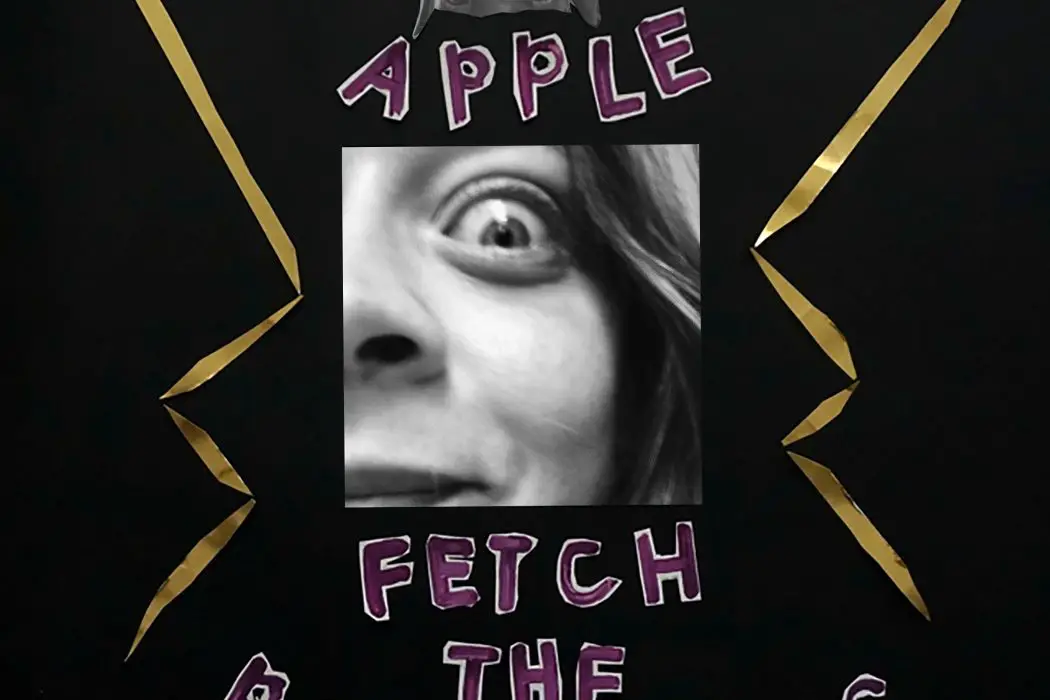Atwood Magazine’s writers discuss Fiona Apple’s ‘Fetch The Bolt Cutters’, her first album in almost eight years, the catharsis and darkness embedded in the album’s narrative, and the record and Apple’s reputation.
Featured here are Atwood Magazine’s writers Mariel Fechik, Nick Matthopoulos, Jesse Herb, Matthew Dunn, Josh Weiner, and Nicole Almeida.
— —
Last time we heard from Fiona Apple, it was 2012. Some conspiracy theorists thought the world was coming to an end, Obama was re-elected, and Gotye’s “Somebody That I Used to Know” was the song of the moment. Looking back, it seems like a completely different world, an alternate reality. We escaped the apocalyptic predictions of December 21st 2012, but now, eight years on, the world is paralysed by another, and maybe worse kind of doom and despair. With the increasing popularity of fake news and a growing disbelief in the reality we’re actually living in, Apple’s silence felt deafening.
The world yearned for someone who would look the truth right in the eye and confront it, speak about her life lacking the polish and filter that so permeates people who, like Apple, have reached legend status. And then, while we were all stuck at home, unable to go anywhere, Apple released Fetch the Bolt Cutters, her fifth studio album. Made in the confines of her own home, Fetch the Bolt Cutters is a collage of formative moments in Apple’s life, featuring a cast of characters including middle school bullies to obnoxious dinner party guests to Apple’s dog. It doesn’t hold back, and it asks listeners not to either: fetch the bolt cutters and break away from whatever prisons or boxes are restricting them. At a time when we can’t break free from the walls of our homes, it forces us to identify and break free from other, more abstract and powerful forces that paralyze us day in and day out.
On this roundtable discussion, Atwood Magazine’s writers discuss Fetch the Bolt Cutters, Apple’s legacy and reputation, her penchant for a particular kind of darkness, and the catharsis that’s inherent to the album’s spirit.
Stream: ‘Fetch the Bolt Cutters’ – Fiona Apple
Do you think this album earned the perfect score given to it by many publications (specifically Pitchfork’s 10.0 rating)? How does it compare to her earlier works?
Matt Dunn: I think the rating system is both arbitrary and integral to how we collectively look back at an artist’s discography and contributions to music as a whole. The premature “100/100” ratings this album received only built up expectations that were impossible to meet. I feel this album is second to The Idler Wheel… and perhaps even When The Pawn… but this is only due to those albums having great lengths of time to grow and coalesce, showing the power in Apple’s songwriting capabilities. We’ll know in a couple months, years, however long, whether Fetch The Bolt Cutters will stand that same test of time, deserving or not of those perfect scores.
Mariel: In general, I tend not to read reviews of an album before I’ve listened to it, as it most often does skew my listening. I’d heard that Pitchfork had given Fetch The Bolt Cutters a 10 before I listened, but I don’t really think that my listening was affected in this case. Apple’s work sits in a different category from most music for me, and I was able to compartmentalize other journalistic pieces about the album and her place in my life and listening. The Idler Wheel…is an incredible album and it was also my introduction to Apple, so it will always hold a special place in my heart. To be honest, I don’t really think it’s necessary to compare the two.
Nick M: I definitely enjoyed it, but I’m always a bit leery when critics and publications hand out perfect scores regardless of whose work is being evaluated. Right now that’s kind of hard to say. I got into Fiona’s work, The Idler Wheel… and all that, sometime after it had all been released so there was never any pressure to play one of those records with any expectation of them being “perfect.” I got to enjoy them differently than this one. I’ll need to come back to this one a few more times still, there was a lot of critical saturation the moment it came out and that kind of interfered with my experience.
Jesse H: I don’t know how much I agree with rating systems as a whole. I think they’re such a subjective entity that to follow them complicitly, inadvertently endows a loss of autonomy. I personally think this album is a complete home run. It’s so nice to see artists that are so often heralded in the beginning of their careers but then relegated to being like a comet at the end, succeed. Especially someone like Fiona who has been so battered by press, critics, and authority figures in her life. Fiona’s lyricism and wordplay have never been stronger, and you can tell that comfortability, in this case a home studio, influences the quality of her composition. A lot of artists I think reinvent themselves or there’s a palpable difference in taste with the furthering of their art but Tidal, Idler Wheel, and FTBC are completely different yet holistically emblematic of Fiona.
Josh: A lot of great albums have come out in the nearly 10 years since the last time Pitchfork dished out a perfect rating, which was for My Beautiful Dark Twisted Fantasy by Kanye West. Personally, I’m not ready to suddenly declare that Fetch the Bolt Cutters is better than every single one of them, but in no way is that a criticism of Fiona Apple or her new music. It’s clearly a strong record and I’m impressed with what a powerful impression it has made on critics and fans alike.
Nicole: I strongly reject the idea of scores and whether they mean something or not about the value of an artwork. I find it simplistic to try and quantify the quality of something that can be experienced so subjectively and differently by each person who consumes it. I find it hard to think about Fiona Apple today and not hail her as one of the recent musical greats, so it seems almost impossible that she’d get a bad score at all. So, while I love FTBC, I think the score may be derived of a mix of the press’ perception of Apple, her ‘genius’ reputation, the fact that we haven’t heard from her in years, people’s thirst for a great album to dive into during this pandemic, and the album’s actual quality.
Having not released a new album in almost ten years, has any of the hype for this album, before or after the release, influenced how you experienced or listened to this album?
Matt Dunn: Not really. Apple, in a way, has the benefit of being around for a while. She does not have to vie for streams. Her work has already spoken for itself, so this release was just “another addition,” if you will.
Mariel: Fiona Apple has always been someone that stays out of the spotlight and does her own thing, and despite the fact that there was fan and journal-induced hype surrounding this release, I honestly just ignored it until I could listen to the album itself. She barely did any press outside of the Vulture interview. For some artists, I enjoy participating in a community buildup – but Apple, for whatever reason, just feels private to me. I’d much rather be excited about and experience her music on my own.
Nick M: Yes and no. Like a lot of people, I was excited to hear a new Fiona Apple album, but I think the hype was distracting. Pitchfork gave the album a perfect score ON the day the album came out. I feel like the moment it was released, there was no room to breathe or get away from people talking about it. I enjoyed the album, but I’m stubborn and did not listen to it right away.
Jesse H: Oh hell yeah. Of course. I think I always find myself coming back to the Angel Wings and Full Knight’s Armor images at 3 in the morning thinking, “Damn, I miss her. I hope she’s doing ok.” Since there truly was so little publicity for his album, there’s nothing tangible to get excited about and therefore you can only rely on the intrinsic excitement that at any moment a new Fiona Apple album could come out. Which, if you think about it, is a genius marketing strategy in it’s own right.
Josh: Fiona Apple tends to go years between studio albums (notice the gap between 2012’s The Idler Wheel… and 2005’s Extraordinary Machine, as well as the time lapse between the latter and 1999’s When the Pawn….) I’ve sort of accepted that she’s the kind of artist who likes to take her time, and didn’t let that fact sway my opinion of her new album one way or the other.
Nicole: It did for me just because I hadn’t really spent enough time diving into Apple’s discography, history, old magazine profiles etc, and I dived in right before the album was released so that I could get a better understanding of who I was listening to. That being said, my research made me admire her so much that I was very eager to love Fiona Apple’s work, which she made easy since Fetch the Bolt Cutters is just great and such a statement.
Apple’s music has always been predicated on a particularly off-kilter brand of darkness. Does this album feel more or less dark than her past work?
Matt Dunn: I might not be so quick to call it “dark” so much as “raw,” but I see the comparison for sure. Apple’s real (and I mean real) gritty lyrics almost dance along her composition. I think it to be quite “light” in all honesty. It is a freeing form of self-expression.
Mariel: To me, this album feels both angrier and more free. Though Apple’s signature strange and depressing lyrics are here, it almost feels as though she has slightly let go. On past albums, she has sounded deeply exhausted. Here, there is a startling sense of unbridled joy within some of these songs, which feels at once out of place and entirely appropriate. The songs are hyperactive and dynamic, many of them playing with the rhythmic hand clapping and drumming patterns of children’s playground games juxtaposed with startling lyrics like, “You raped me in the same bed your daughter was born in.” Some of these songs feel like some of her darkest yet, and some feel like celebrations.
Nick M: It doesn’t sound like it makes “darkness” the main theme of the album, but it still has its dark, and raw moments. There almost seems to be too much going on, even in the more subtle layers, to dwell on this album as exclusively dark.
Jesse H: Hm, “dark” is such an interesting word to describe Fiona Apple. I agree with it, but I think its usage fosters a yes and no answer, unfortunately. Tidal and Idler Wheel are dark because they’re chronicling a young woman coping with her own inner demons and the turmoil of a society begging you to “define yourself”. Whereas FTBC would be called dark because the subject matter is the most honest and straightforward it’s ever been and therefore objectively dark. To say which is “darker” borders on apples and oranges, but I think regardless of the lamenting or moroseness from her music, Fiona always provides a “light” as well. She couldn’t care less about scrutiny and the second her work is out there, it’s done, that’s it, – and I think that unabashed sense of self always provides levity.
Josh: I agree with some of the others here. “Dark” isn’t really the word I would use to describe this album the way I would, say, The Marshall Mathers LP or In Utero, but maybe I’ll go with “unsettling” instead. That seems to be an apt description for the guttural vocals, strange shrieking, and somewhat threatening lyrics that surface on occasion all across this record. Certainly that album cover can be labeled as “unsettling,” and that just winds up being pretty telling of the content of the record itself.
Which tracks do you find to be the most empowering, sonically or lyrically, and why?
Matt Dunn: It is hard to say, because every time I want to re-skim through the album to collect my thoughts I find myself going, “Oh wait, this one is really good,” “Oh, and the piano on this one is killer,” “Oh but wait, her…” and so on. That said, “Shameika” had an initial impact. Apple’s ability to shred the piano apart like paper is what first, and will always, attract me to her stylistically. The thematic changeups make for a track I will not be forgetting anytime soon. (As an aside, she told the story of how this track came to fruition in her interview with Vulture… it’s pretty good.)
Mariel: The lyrics in the chorus of “Under The Table” make me laugh, as well as think angrily about all the times I’ve been cut off, contradicted for no reason, or told I’m being too loud (all mostly by men): “Kick me under the table all you want, I won’t shut up.” The line “I would beg to disagree, but begging disagrees with me” is another favorite. My friends know me as someone who loves to argue, as someone with strong opinions that I will fight for. I feel this song deeply. So many of Apple’s songs deal with femininity, but in ways that are so opposite and far removed from the way that feminism is dealt with in mainstream pop music. The lyrics are more visceral, more full of rage, and devoid of the type of platitudes that are cute for a pastel music video, but ultimately mean and achieve nothing.
Nick M: I feel like I need to give the album a few more listens before I can provide a more definitive answer on that. But, to kind of answer both parts, I think “Relay” and “Under the Table” are both pretty heavy songs. “Relay” is so heavy rhythmically that it feels like a chant, pretty much through the entire song. It’s a heavy song overall. “Under the Table” sounds more refined, almost like it’s the background music to the party she didn’t want to be at, but works nicely in contrast to Apple’s irritated narration and lyricism.
Jesse H: First thought is “For Her”. The line “You raped me in the same bed your daughter was born in” is still branded into my memory. The track is so multifaceted and layered expertly. It starts off with this frenetic almost upbeat sound and so much vocal overlap but with each sound shift, it gets more intense and accusatory. It feels like a woman who is fumbling and all over the place slowly honing further and further in until she finally releases what she needs to say and thus takes power back for herself. I’m currently clutching my heart thinking about it.
Josh: I’ll go with “Relay.” There’s something empowering about hearing Fiona Apple describe how to throw her anger out the door even in the most trying of situations. She seems to be inviting her fans to do the same as they go through tough times of their own.
Nicole: I’ll agree with Mariel here, “Under The Table” spoke to me in a very particular way from the first listen, when I really listened to the chorus and realised she was standing up against being silenced. I’ve been in too many situations where my point of view was seen as unorthodox, inappropriate, a little too controversial, or where my voice wasn’t valued, and “Under The Table” just brought me back to those moments and emphasised that the idea of being silenced is one that I won’t accept.
Fiona Apple’s album titles have seemingly always been designed to be eye-catching (one is even in the Guinness Book of World Records for the longest album title ever). In turn, how does Fetch The Bolt Cutters grab your attention?
Matt Dunn: Even if unintentional, it is aptly titled for the current pandemic-timeline in which we are all active participants. Has any one of us felt trapped? Decayed? Incapable of doing what we once did? Fetch the bolt cutters!
Mariel: As a friend of mine said, “I think its main selling point is that its title track is about grabbing bolt cutters and escaping your house prison.” I don’t think I really have anything else to say about it.
Nick M: Well, at first glance, Fetch The Bolt Cutters, just sounded cool. After listening though, I think it’s a fitting title that cleverly highlights kind of what the album is like. Although I think the Pitchfork review, for example, is a bit sensational, “Fiona Apple’s fifth record is unbound, a wild symphony of the everyday, an unyielding masterpiece. No music has ever sounded quite like it.” I think the title hints at that. “Fetch” sounds refined and calculated whereas “Bolt Cutters,” sounds rough and brutish, whether the bolt cutters in question are “real” or not. It’s not a stretch to say that Apple’s ideas of refined/calculated and rough/brutish might sound unbound and wild.
https://pitchfork.com/reviews/albums/fiona-apple-fetch-the-bolt-cutters/
Jesse H: God, I love how dramatic Fiona is, When the Pawn… makes me laugh everytime I think about it. For Fetch the Bolt Cutters, I was about to quote the same thing Nick did because I think it’s so insightful and a great observation. It’s also interesting to compare the title on it’s own and in context of the song. In the track, “fetch the bolt cutters, I’ve been in here too long” comes with the notion that Fiona is beckoning for someone to do a task for her, that she specifically has had enough of enclosure and is now deciding to be released; another testament to exercising agency. Yet, on its own, the title has an air of mystery, like Fiona, which garners intrigue enough for the listener to look for an explanation.
Josh: I’ve listened to thousands of hours of music in my life and can’t, for the life of me, think of an album title or even a song lyric that references “bolt cutters.” So, off the bat, Fetch the Bolt Cutters struck me as a rather startling and unusual name. As I listened to the album, I was further startled to see “bolt cutters” used as a metaphor for liberation. As many reviewers (and my fellow Atwood writers) have remarked, it’s an especially fitting metaphor to surface in a period of such drastic confinement for everybody as spring 2020 has proven to be.
Nicole: I’ll actually let Fiona Apple take this one since she explains what the title means better than anybody else: “The message in the whole record is just: Fetch the fucking bolt cutters and get yourself out of the situation that you’re in — whatever it is that you don’t like.” I’m all for breaking out of personal prisons and creating the reality you want to live in.
Do you think there’s something to be said for albums that are mainly made for the musician’s catharsis and not necessarily for audience approval? How would you say FTBC plays with this idea?
Matt: I think of (Sandy) Alex G on this type of wavelength. Granted, operating under much different conditions early on in his career, releasing album after album, it was still done so in the name of self-expression. The sound is unlike most of what we’ve heard before and that goes back into Fiona Apple’s appeal. We gravitate towards these artists because they can evoke an emotional set we have yet to experience in this way. I’d say that Fetch The Bolt Cutters only furthers Apple’s paving of her own lane.
Mariel: I really don’t think we can assume that intent about this or any other album. Yes, many musicians make music for their own catharsis, but if they were purely making it for their own sakes, they’d never release it. While Apple’s work often reads very personal, there is something to be said for community catharsis, and in this very specific instance, that’s exactly what its become.
Nick M: I don’t think they are mutually exclusive. Though Fiona Apple may not be looking for the approval of an extended audience, she probably has a solid idea for whom, besides herself, is going to be connecting with this album. It has been a decade since her last album and people are still enthralled and attached to her work, for good reason.
Jesse H: I think one of the hardest things about Fiona releasing new music, is the shirking of her talent and intentions. Obviously, no artist is ever free from criticism but I think it’s hard when people degrade her as a “weird, quirky musician with nonsensical lyrics”. The aforementioned isn’t always uttered with a negative connotation, but Fiona is an incredibly capable musician, who curates her art so specifically and, whether favorable or not, she’s not always asking for your opinion on it. People will have an opinion either way, as I am literally giving one right now, but it’s the veracity at which people feel the need to explain the work or confine it to their own understanding rather than realizing on a macrosomic level that she just needed to heal via her art. Of course, on the other hand, I’m glad the music can bring people together and create a closeness based on past traumas.
Apple decided to release Fetch The Bolt Cutters earlier than planned, and it came to us during a moment of global pandemic and an almost worldwide quarantine. Reflect upon Fetch The Bolt Cutters as an album that’s largely being experienced inside the house and in possible isolation during a time of despair.
Mariel: As I mentioned in the last question, this album has become somewhat of a tool for community catharsis, at least for Apple’s fans. There is a sense of wildness to this album, as well as the extremes of joy and despair. This is what everyone’s feeling in one way or another right now, and on one hand, it’s difficult to listen to music that sounds like what I feel – on the other, it’s a gift to have an album so timely in the midst of what has become the most surreal time of everyone’s lives.
Nick M: I feel like whatever combination of emotions the album travels across, it mimics and shifts with our feelings in quarantine. Some moments are fine, others are less fine, and the hardest part is that they can change in an instant. It’s interesting that these two things, the album and the seclusion aligned the way they did.
Jesse H: It’s an album that was conceived and mostly created at home so it feels strangely right. It also provides just one more layer of depth into understanding her and her thought process as she has always been a self proclaimed homebody. I also think she took one look at the status of the world, plus her fans, and said here’s as much as I can do that alleviate this situation I’m used to, but i know the vast majority of you are not.
Josh: Yeah, I agree that those two descriptions are not mutually exclusive. Moreover, it’s not clear to me that this album emerged as an act of personal catharsis on Fiona Apple’s part. But hey, it wound up being a memorable and original product that won over the masses, so that’s the outcome I’ll prefer to focus on.
Nicole: Personally, I find that there’s no better way to experience such a sonically and lyrically rich album, from such a huge personality, than during a time where you’re at home and have the time and chance to live it intensely. It feels very personal, and as Jesse said it was recorded at Apple’s home, so I think being able to listen to this record at home gives you the chance to really dissect it profoundly, make your own meaning of it, and maybe even consider how you would approach creating something from the comfort of your own home.
— — — —

Connect with Fiona Apple on Facebook
Discover new music on Atwood Magazine
? © Fiona Apple 2020
Fetch the Bolt Cutters
an album by Fiona Apple









